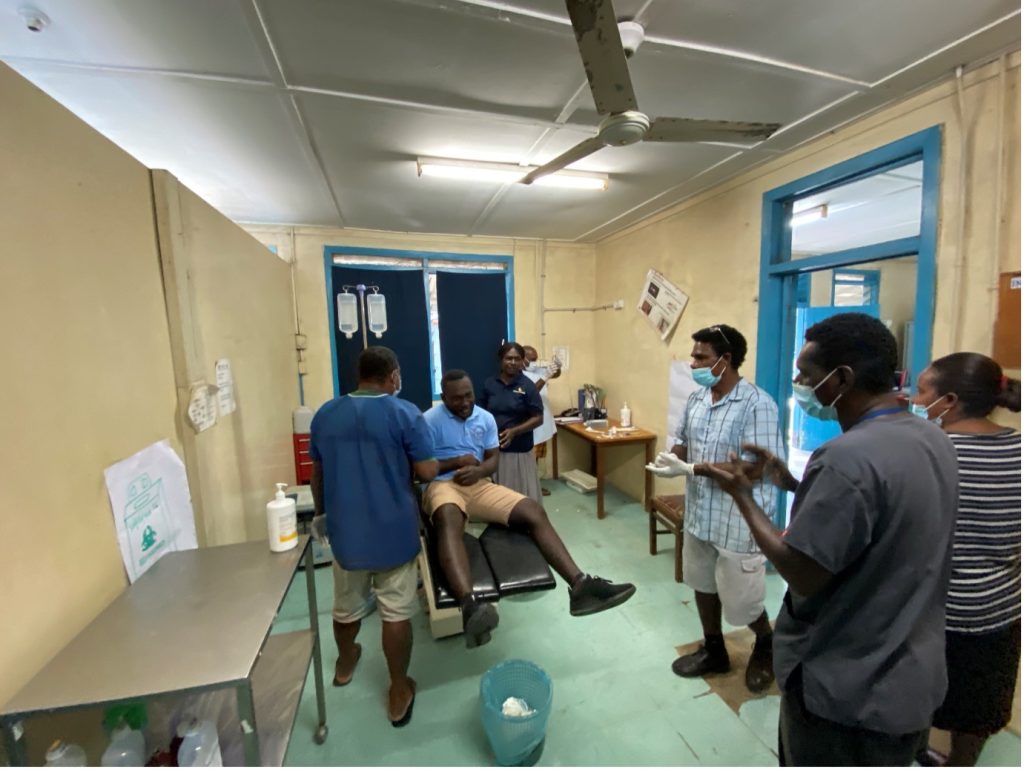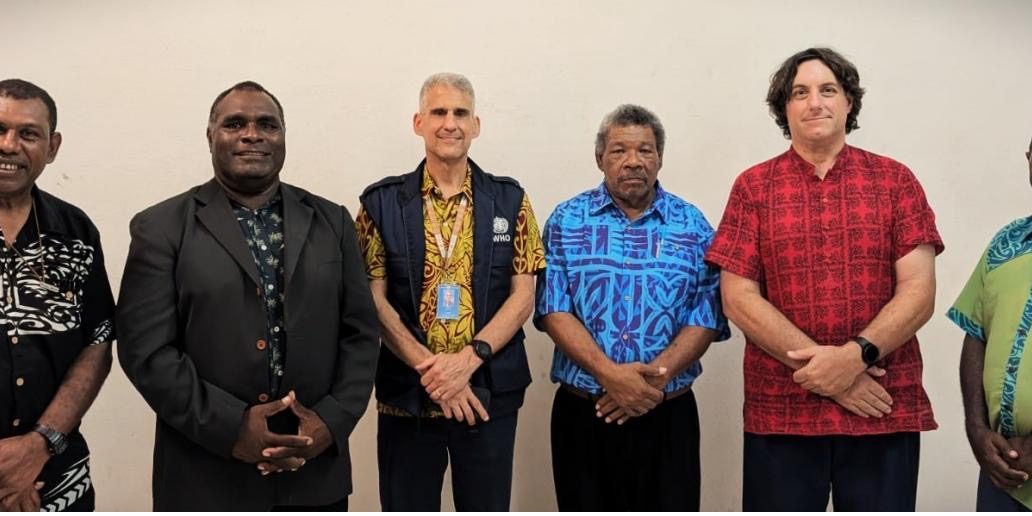HEALTH facilities can either be a place of healing or where infectious diseases spread to patients and health workers alike.
During the COVID-19 pandemic, hundreds of millions of patients and up to 1 million healthcare workers globally contracted COVID-19 whilst providing or receiving routine health services.
Beyond COVID-19, around 45 million persons seeking or providing care in low-and-middle-income countries, including hundreds of Solomon Islanders, contract tuberculosis, influenza, and other viral and bacterial infections while in health facilities.
The Ministry of Health and Medical Services (MHMS) and World Health Organization (WHO) joint Infection Prevention and Control (IPC) team last month successfully conducted a 3 days training in July as part of a nationwide rollout. Six Kirakira Hospital staff from multiple areas of health services enthusiastically participated.
Registered and paediatric Nurse Ms Monica Talo, who has worked at the Kirakira Hospital for 15 years and the IPC officer who also attended the workshop spoke highly of the training.
“This is the first comprehensive training provided to us on IPC here in Kirakira. It helped me to see that all of us can take simple steps to keep our patients and wantok, safe.”
The other clinical staff who attended the training also echoed the same statements, saying the simulation brought to light things everyone took for granted but require changes to improve theirs and their patients’ safety.
WHO convened the 75th and 77th World Health Assemblies (WHA) where Member States adopted Resolutions on the Global Strategy (2022) and Global Action Plan and Monitoring Framework (2024) on Infection Prevention and Control (IPC).
The Solomon Islands’ MHMS directly contributed noting that has developed and endorsed the National IPC Guideline (2021) and have put IPC programme quality as a priority means to achieving the goals of National Health Strategic Plan 2022 to 2031. The joint IPC Programme has translated the guidelines into action by exposing health staff to simulated clinical environments so they can identify gaps and strengths in IPC at their health facilities and be empowered to take steps to meet global standards.
MHMS Minister Dr Paul Popora Bosawai in a debrief stated, “This situation is unacceptable when we have the tools to prevent most hospital associated infections. The Solomon Islands Ministry of Health and Medical Services, National Referral Hospital and WHO (World Health Organization) have joined forces to combat this modern plague.”
WHO Country Representative Dr Howard Sobel also spoke of WHO’s commitment to improve healthcare services in Solomon Islands.
“WHO is committed to help the Solomon Islands to continually improve the standard of health care delivery nationwide. We are pleased with the enthusiastic reception of this first visit IPC simulation activity in Kirakira. MHMS and WHO have ongoing programmes to support Solomon Islands health facilities to become safe, green, and climate resilient.”
Meanwhile, Premier of Makira-Uluwa Province, Stanley Siapu, MUPG Minister of Finance, Silas Wagatora, MUPG Minister for Health, Donald Tahani and the Director of Provincial Health, John Harara welcomed the team who summarized the findings and actions to protect MUP’s dedicated health service providers and patients.
MPA Donald Tahani commended the national team.
“The collaboration between the Ministry of Health and Medical Services, the National Referral Hospital and the World Health Organization illustrates how health programs can effectively engage with us to improve the health of our communities. We are committed to make the changes needed to ensure health facilities across Makira Province are safe and healthy.”
- MHMS










